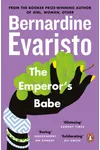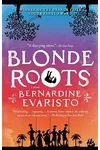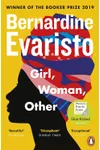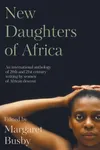Picture a British storyteller who wove a vibrant tapestry of Black women’s lives, shaking up the literary world with her bold, poetic prose—meet Bernardine Evaristo! This Anglo-Nigerian author, celebrated for her groundbreaking novel Girl, Woman, Other, claimed the 2019 Booker Prize, becoming the first Black woman to do so. Her work dances across genres, blending fiction, verse, and activism to amplify the African diaspora’s hidden narratives.
With a career spanning decades, Evaristo has penned novels, poetry, and essays that challenge conventions and champion diversity. As a professor and mentor, she’s a beacon for emerging writers, proving that stories from the margins can take center stage. Let’s dive into her remarkable journey!
The Making of Bernardine Evaristo
Born on May 28, 1959, in Eltham, South East London, Bernardine Anne Mobolaji Evaristo was the fourth of eight children. Her Nigerian father, a welder and Labour councillor, and English mother, a schoolteacher, raised her in a multicultural household. Evaristo’s passion for the arts bloomed early, nurtured at Greenwich Young People’s Theatre and later at Rose Bruford College of Speech & Drama. She earned a PhD in Creative Writing from Goldsmiths, University of London, laying the foundation for her literary career.
In the 1980s, Evaristo co-founded the Theatre of Black Women, Britain’s first such company, sparking her lifelong commitment to inclusivity. Her early works, like the verse novel Lara, drew from her mixed-race heritage, setting the stage for her genre-defying style.
Bernardine Evaristo’s Unforgettable Stories
Evaristo’s writing is a kaleidoscope of voices, blending prose and poetry in what she calls 'fusion fiction.' Her 2019 masterpiece, Girl, Woman, Other, follows 12 interconnected Black British women, aged 19 to 93, exploring identity, love, and resilience. Its innovative structure and vibrant characters earned it a shared Booker Prize with Margaret Atwood’s The Testaments, a historic win that catapulted Evaristo to global fame.
Other notable works include Mr Loverman (2013), a tender tale of a closeted Caribbean Londoner navigating love and identity, and Blonde Roots (2008), a satirical reimagining of the transatlantic slave trade where Africans enslave Europeans. Her verse novel The Emperor’s Babe (2001) brings ancient Roman London to life with a Black protagonist, showcasing her knack for blending history and modernity.
Evaristo’s style is fearless, experimental, and deeply human. She subverts expectations, weaving humor, heartache, and social commentary into narratives that celebrate the African diaspora’s complexity. Her works, translated into over 40 languages, resonate worldwide, earning praise from Barack Obama and Roxane Gay.
Why Bernardine Evaristo Matters
Evaristo’s impact transcends her books. As a literary activist, she’s founded initiatives like the Brunel International African Poetry Prize and The Complete Works mentoring scheme, nurturing diverse voices. Her presidency of the Royal Society of Literature (2022–2026), as the first Black person in the role, underscores her trailblazing influence. Evaristo’s work challenges stereotypes, redefines British identity, and inspires writers to tell their own stories.
Her 2019 Booker win marked a cultural shift, spotlighting Black British women’s narratives. By curating Penguin’s Black Britain: Writing Back series, she’s revived out-of-print gems, ensuring the African diaspora’s literary legacy endures. Evaristo’s tenacity—honed over 40 years—reminds us that persistence can reshape the world.
About Bernardine Evaristo
- Born: May 28, 1959, Eltham, London
- Key Works: Girl, Woman, Other, Mr Loverman, Blonde Roots, The Emperor’s Babe
- Awards: Booker Prize (2019), British Book Awards (2020), OBE (2020), MBE (2009)
- Fun Fact: She was the first Black woman to top the UK paperback fiction charts!
Snag Girl, Woman, Other and dive into Bernardine Evaristo’s vibrant, boundary-breaking world! Her stories will leave you inspired, challenged, and hungry for more.














